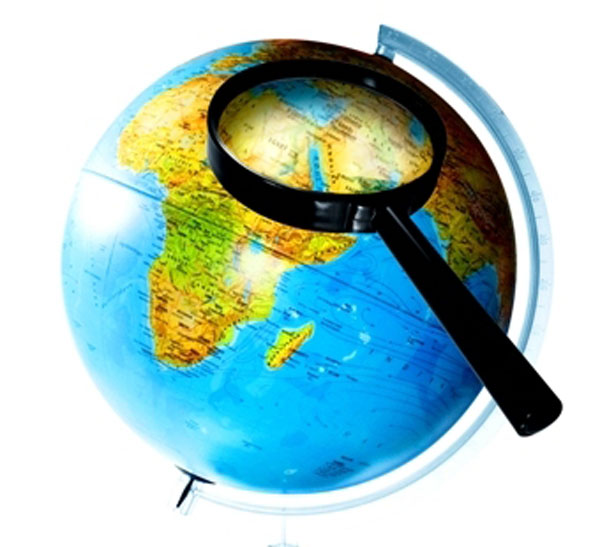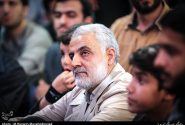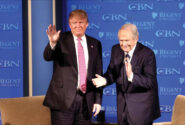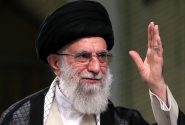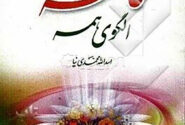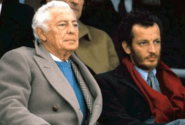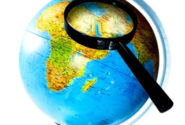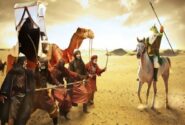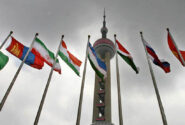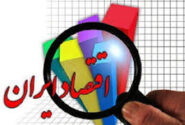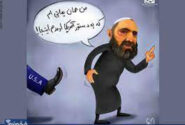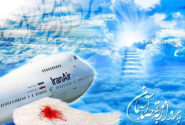Review:
The extensive political and social developments that have occurred in the Middle East and North Africa region and its dimensions are expanding day by day are rooted in the historical, civilizational, cultural and social realities of this region, which are currently in the form of a range of peaceful protest gatherings. It has covered conflicts and armed struggles from North Africa to the south of the Persian Gulf.
The title of Islamic awakening is a concept that can better analyze and explain the incidents and events of the Middle East and North Africa region based on historical, cultural and identity considerations, among the political approaches is the constructivist theory due to special attention to culture, identity and interpersonal interactions. It is able to analyze and review the developments of this region in a more comprehensive way.
The current research finds the roots of the developments in the Middle East and North Africa in two groups of endogenous factors, i.e. “issues” such as the failure of non-Islamic models and the growth of Islamism, feelings of disillusionment, historical humiliation and a return to Islamic identity, the efforts of great intellectual and jihadist figures Islamic and exogenous factors, i.e. “incidents”, such as the occurrence of the Islamic revolution in Iran, colonialism and the presence of Western powers in the region, the Palestinian crisis and the existence of corrupt, Westernized and unpopular governments from the perspective of the Supreme Leader are examined.
Key words: Islamic awakening, Ayatollah Khamenei, Islamic identity, Iran’s Islamic revolution, Palestine crisis, colonialism and Western powers, intellectual, jihadi and Islamic movement figures.
Introduction
Major political and social developments are rooted in historical, civilizational and cultural realities, this issue is of particular importance in the Islamic world and especially in the Middle East and North Africa region due to its civilizational history and Islamic identity. In addition to being the meeting place of ancient ancient civilizations and great monotheistic religions, this region has been the center of developments and attentions of great powers for a long time due to geostrategic, geopolitical and geoeconomic issues and the energy issue.
What today covers a wide area of the Middle East and North Africa and is referred to as the Islamic awakening, according to the supreme leader of the revolution, are not events cut off from historical roots and social, cultural and intellectual contexts. Therefore, reviewing and providing a correct analysis of recent events in the Middle East and North Africa requires a detailed study of the history of political, cultural and social developments in this region, especially in the last century. Some thinkers consider the current events to be the result of divisions that date back several centuries.
According to the above discussions, it seems that among the existing political approaches, the “structuralist” approach has a greater ability to analyze and explain the developments in the Middle East and North Africa region than the liberal and realist approaches and their various aspects, although for analyzing some of the Global events seem appropriate, but due to the prominent role of concepts such as identity, culture, ideology, history and civilization and their impact on developments in the Middle East and North Africa region and the special attention of the constructivist approach to these concepts, this method seems It is a suitable approach for the correct analysis of the events in the region.
The current research, which was written using a library method and with an analytical-historical approach, tries to investigate the roots of recent developments in the Middle East and North Africa from the perspective of the Supreme Leader. And many Persian and non-Persian sites have been investigated.
The roots of Islamic awakening from the perspective of the Supreme Leader can be examined in several ways; Among them, we can refer to the division based on political, cultural, historical factors, etc., and they can also be separated into long-term (historical), medium-term (contemporary) and short-term (current) causes and factors. In addition, they can be divided into two categories of value-identity and environmental-historical factors. Despite the positive points that each of the mentioned divisions have, the author, due to reasons such as thematic interference and overlapping of the above divisions, conducted the present research according to the endogenous and exogenous factors and roots of the Islamic awakening. has studied.
Endogenous factors are the factors that are related to the human person and the self and unconsciousness of the Muslim person and have been transferred to him through a process from past generations and do not have the nature of happening (such as the occurrence of a revolution) but from the accumulation of thoughts, historical memories. , identities and ideals are formed, and exogenous factors are events that originate from outside the individual and his thoughts, and a specific event can cause it. It goes without saying that some issues such as the Palestinian crisis, the revolution Islamic Iran and the failure of non-Islamic models, despite the fact that they have been investigated under the title of one of the internal or external factors, but due to the simultaneous historical and identity dimension, they have also had the ability to be investigated under the separate internal-exogenous title, which the author Avoiding the dispersion of the research, he refrained from it and left it to the audience to combine it only by stating the above explanations.
In this article, issues such as the failure of non-Islamic models and the growth of Islamism, feelings of disillusionment, historical humiliation and a return to Islamic identity, the efforts of great intellectual and jihadist figures and Islamic trendsetters have been investigated under the title of endogenous factors, and cases such as the occurrence of revolution Islamic Iran, colonialism and the presence of western powers in the region, the Palestinian crisis and the existence of corrupt, westernized and unpopular governments have been examined under the title of exogenous roots of Islamic awakening from the perspective of the Supreme Leader of the Islamic Revolution of Iran, Ayatollah Khamenei.
The upcoming research tries to answer the main question of this article, which is “what are the endogenous and exogenous reasons and roots of Islamic awakening from the perspective of Ayatollah Khamenei”, and secondary questions such as the Islamic identity of the people of the region and the insults from What effect did colonialism and puppet governments have on the decline and growth of recent Islamic uprisings? What role did the Palestinian crisis and the Islamic revolution play in the continuation of Islamic currents? have provided, and what is the link between the unpopular puppet governments, the accumulation of frustrations and finally the attempt to return to the Islamic identity, should be investigated.
Islamic awakening in the political thought of Supreme Leader
The political philosophy of Hazrat Ayatollah Khamenei is a rational reflection that is rooted in the foundations of his religious knowledge, and its two prominent features are the summarization of religious sources and the life of the Messenger of God (PBUH) and Ahl al-Bayt, peace be upon him, and the second aspect of responding to issues. Objective society [1] , the position of supreme leadership in the philosophical dimension is among the eschatological philosophers whose concepts such as bliss and perfection in the afterlife, good life and guidance form the basis of their political philosophy. From the point of view of His Holiness, no category has authenticity if it does not lead to the mentioned cases, and even topics such as seeking justice and fighting arrogance are also approved if they are on the way to attaining a life of righteousness and Ali Allah [2] .
In the definition of the concept of politics, the Supreme Leader believes that planning (politics) with the Islamic description is not only about material life and the apparent goals and motives within the limits of human expectations and in the field of competition for acquiring power, but it is about pleasing God and fulfilling one’s duty. The good life is the achievement of eternal happiness and perfection[3]
He says about the importance of using appropriate and comprehensive words and concepts for correct explanation and analysis of issues and developments: One of the things that is necessary in every general movement and in every movement is that based on the basic thoughts and foundations of this movement and this current, both words must be created and institutions must be created. When a new idea – such as the idea of Islamic government and Islamic system and Islamic awakening – is proposed, it induces new concepts in the society; Therefore, this movement must have its appropriate words; If foreign words are borrowed, the atmosphere will be chaotic, the matter will remain unsaid[4]
In the political thought of Ayatollah Khamenei, Islamic awakening is not a new concept and it is not the result of recent developments. Briefly, Islamic awakening, in the view of the Supreme Leader, means creating a state of excitement and awareness in the Islamic Ummah that leads to external changes and transformations [5].. In his view, talking about Islamic awakening is not about an unclear and ambiguous concept that can be interpreted. Rather, this concept means a visible and tangible external reality that has accumulated the space and created great uprisings and revolutions, and has knocked down dangerous pieces from the enemy’s front and pushed them out of the scene. [6]
۱- Endogenous factors of Islamic awakening
۱-۱: The failure of non-Islamic models and the growth of Islamism
The wave of Islamism, which is examined under the endogenous factors of Islamic awakening, with the problem of the failure of non-Islamic patterns and the identity crisis among Muslims, especially after the feeling of humiliation caused by the occupation of Palestine and the consecutive failures of Arab governments from the Zionist regime (as an external factor) za) has an effective logical connection.
The increasing decline of the Islamic empires of Ottoman and Iran caused the emergence of competing nationalist ideologies that had racial and linguistic identity. In the Middle East and North Africa, three types of Turkish, Iranian, and Arab nationalism emerged instead of the Islamic nation [7] .
All three models, which are mixed with the principles of secularism, secularism, nationalism and extreme chauvinism, pseudo-Marxism and socialist interpretations of Islam and advocated by Atatürk, the Pahlavi dynasty and Gamal Abdul Nasser in Turkey, Iran and Egypt, over time have shown their inadequacy in managing society. And the realization of his slogans showed and led to failure one after another.
Also, the efforts made in the form of revolutionary socialism, western liberalism and Islamic fundamentalism could not become successful models for governance in the Middle East.
Finally, during the 1980s, the Islamic way emerged as a powerful and important successor[8] , in fact, Islamists succeeded in determining the framework of political discourse and removed non-religious ideologies such as nationalism, socialism, and democratic liberalism from the scene.[9] , the limited number of countries that after the failure of socialism and nationalism are now governed by the combined model of national socialism, according to Bernard Lewis, have failed in every test except the test of survival. [10] , failures that can be mentioned as areas of growth, development and return to Islamic thoughts.
The well-known Egyptian thinker Mohammad Hassanin describes the despairing atmosphere caused by the failure of non-Islamic ideologies after the third Arab-Israeli war as follows: After the war of 1967, all the people of the Middle East had to revise a series of principles, all the ideals that had been nurtured had turned into a mirage and the previous certainties turned into a lie, was there anything left to hold on to? Religion was the only available answer [11] .
Regarding the failure of material models and the replacement of Islam in their place, the Supreme Leader says: As the developments of the 1950s and 1960s in a number of these countries led to regimes often inclined to materialistic thoughts and ideologies, and due to their nature, after a while they were caught in the trap of the arrogant and colonial powers of the West, these are learning experiences that They have a great contribution in shaping the public thought and the current depth of the Islamic world [12]
In fact, the failure of the material intellectual-political forces in creating dynamic national and regional systems and the failure against the great powers caused Islamism to display its hidden strength and power, which was suppressed by its rivals in the previous years, and as The only effective force to emerge in the region [13]
Regarding Islamic trends and disappointment with material models in the Islamic world, the Supreme Leader says: Today, the intellectuals of the Islamic world, fed up with socialism and Western schools, have turned towards Islam and… seek the cure for the pains of humanity from Islam [14] .
He considers the developments in the countries of North Africa and the Middle East to be the use and desire of the light of Islam and the use of the direction of the blessed hand of the Holy Prophet [15] and they believe that these developments are an attempt by Muslims to return to their authentic and Islamic identity [ 15]. 16] .
The nations of the region consider all failures, failures and humiliations to be distanced from Islamic principles, some analysts consider political Islam and Islamist tendencies to be the center of today’s challenges in the Middle East and North Africa.[17] And they believe that despite all the diversity that exists among Islamist groups, all these groups have one thing in common, and that is their desire to Islamize the society and fundamentally change the politics of these societies.[18]
Ayatollah Khamenei considers the efforts of Islamic groups as a move towards raising the flag of Islam, which has been a deep belief and long-standing attachment of the people. [19] And they believe that, from their point of view, the enjoyment of psychological security and justice, progress and prosperity will not be achieved except under the shadow of Islamic Sharia. [20] .
Despite the material analyzes in explaining the developments in the Middle East and North Africa by some analysts, while confirming the existence of economic crises in these countries, the Supreme Leader does not consider it to be the main and root cause of these developments. They consider Islamism[21] , they believe that this awakening has an Islamic color based on extensive and indisputable facts [22] and they say: Today, the arrogant Western powers do not want to surrender in front of this great and undeniable fact that the nations of the region have woken up… and returned to Islam [23] .
۲-۱: Feeling of disappointment, historical humiliation and return to Islamic identity
The second element that can be mentioned as an endogenous factor of Islamic awakening in the eyes of the Supreme Leader is the feeling of humiliation imposed on Muslims by historical developments and political, cultural and social trends in the contemporary history of the Middle East and North Africa and making them think about His original identity and the uprising has forced him to return to the era of Islamic glory and greatness.
Identity is the most key concept of constructivist theory in political science and international relations. Constructivists believe that what constitutes national, regional and international actions and reactions is identity, culture, society and interpersonal relations, issues that are neglected in liberal and realist approaches. In other words, constructivists consider identities as factors in shaping and defining interests, and they believe that the interactions of actors intersubjectively create common norms and ideas, these norms give consistency to identities, and identities define the interests of actors. [24]
Martyr Ayatollah Motahari considers the Islamic identity to be the reason for the rise and awakening of Muslims against the East and the West. After a period of depression and mental disintegration, Muslims once again emerged in search of their Islamic identity against the capitalist West and the communist East [25] .
The supreme leader of the revolution considers one of the main causes of the uprising of the nations of the region to be the feeling of disappointment and humiliation that was imposed on them by the colonialists and puppet governments. exploited, at the same time they were humiliated and humiliated, the oppressed nations are looking for their dignity [26] , what brought people to the scene was clearly the issue of their human dignity [27] . For this reason, His Eminence considers the uprising of the Egyptian people to be the defense of this nation and its dignity [28] .
Samuel Huntington and Bernard Lewis, as two of the most famous western orientalists, believe that the Islamism of the people of the Middle East and North Africa was a reaction against the all-out invasion of the West in this region, Huntington believes that Islamism is rooted in the dissatisfaction of Muslims with the invasion It has a brutal cultural domination over Islamic countries[29]
In the 8th Middle Eastern meeting of Kurbarke Scientific Research Institute held on April 12, 2011 in Berlin, the first cause of widespread incidents in the Arab world was recognized as “combination of frustrations and humiliations” [30] . Returning to the Islamic self was the most immediate reaction of Muslims to these disappointments.
In the Islamic world and among the majority of Muslims in the world, the first and most important self-definition, as it appears from the written history of most of Islam, is not through the country or nation, nor through race or class, but through religion [31 ]
Referring to the long history of tyranny and colonialism in the countries of the region, the Supreme Leader explains this issue as follows: We believe that the movements that are observed in some Islamic countries today are the reaction of the nations to the long humiliation that the arrogant powers have allowed them.[32] , the Middle East and North Africa region were exploited, occupied and humiliated for a long time and more than a century by the Western governments, France and others, and then by the United States.[33] Therefore, the main cause of this great movement of the people is the feeling of humiliation that has arisen in them from the situation of their leaders, the people were humiliated and felt that they were insulted. [34]
In this sense, any analysis of the Middle East and North Africa region will be insufficient without taking into account the cultural-historical and religious dimension due to this region’s cultural-civilizational history and the importance of the issue of identity and religion. Considering these components, the Supreme Leader considers the foundation and meaning of the movement of the people of the region to be a movement in the direction of identity, dignity and respect. [35]
۱-۳ efforts of great intellectual, jihadist and Islamic current-making figures
In addition to the failure of non-Islamic models, the feeling of humiliation, disillusionment, and the creation of an identity crisis among the Arab-Islamic nations of the Middle East and North Africa and the subsequent return to religious identity and Islamic identity, is the third root and endogenous factor of the Islamic awakening problem in the region. The position of supreme leadership is the existence of intellectual, cultural, jihadist and current-making figures in the Islamic world, especially in the last hundred years.
The issue of returning to religious teachings and Islamic identity, fighting against foreign colonialism and internal tyranny, and reformist efforts in the Islamic world has always been pursued by Muslim elites, especially after the beginning of the period of colonization of Islamic societies and the confrontation with Western culture and civilization.
Although the wave of Islamic awakening has spread all over the Islamic world today, its main origin lies in four important Islamic lands in the last century, namely Iran, the Arab world (mainly Egypt and the Levant), Ottoman Turkey and India.[36]
In addition to the type of reaction of the Islamist elites, which are divided into four main groups: political, military, intellectual-cultural reactions, and mixed movements, the manner of this confrontation also includes a spectrum of reformation, revival and reconstruction, fundamentalism and fundamentalism.
Shah Waliullah movement in India, Sanusi in Libya, Mahdi Sudani in Sudan, Islamic-reformist movements and currents in Indonesia [37], Muslim Brotherhood in Egypt, Amal and Hezbollah movement in Lebanon, Islamic revolution in Iran and Islamic movements in Tunisia, Algeria, Morocco, Saudi Arabia, Iraq, Bahrain, Kuwait, Yemen, Palestine and Syria founded, guided and led by elites have played a major role in the Islamic awakening through their written works, training students and founding intellectual-cultural, political and military movements.
The Supreme Leader considers the presence of great intellectual and jihadi figures and Islamic trend-makers in Egypt, Iraq, Iran, India and other countries of Asia and Africa in the last hundred and fifty years as the background for the current situation in the Islamic world.[38] They believe that the reason for Egypt’s Islamic uprising and the influential role of this country in Islamic awakening is the existence of Egyptian intellectual, cultural and jihadist figures. [39]
The supreme leader of the revolution considers the existence of Islamic thinkers, fighters and awakeners in the last century as a platform for Islamic awakening and the practical implementation of Islamic principles and says: The last century – that is, the 13th century of the Hijri – was the century of the screamers of Islam. From the beginning of the century when Mirza Shirazi – the great authority of Islamic imitation – gave that decisive fatwa in dealing with the British company and set a nation in motion, to the event of constitutionalism in Iran, to the Islamic movements in India, to the Islamic awakening in the western part of the world. Islam – in the Middle East and in the North African region – and the elders who spoke and Seyed Jamaluddin and others and others, was almost a century of cries and a century of struggles, and the next century is a century of experience. This century we are in today is the century of experience [40] .
Crystallization of the role of intellectuals such as Mirzai Shirazi, Seyyed Jamaluddin Asadabadi, Hasan al-Banna, Imam Khomeini, Seyyed Qutb, Mohammad Baqir Sadr, Maududi, Imam Musa Sadr, Sheikh Ahmed Yassin, Omar Abd al-Rahman and other intellectual, cultural and political leaders of the Islamic world in stimulating and The mobilization of the masses of people in the form of public jihad, economic sanctions, cultural confrontation, threatening and intimidating enemies and political and armed struggle has been a trans-class role, time and space escape, Harair Dekamjian, the Christian author of the book Contemporary Islamic Movements in the Arab World He beleives: The full-fledged faith and absolute commitment of men such as Hassan al-Banna, Seyyed Qutb, Mohammad Baqir Sadr and Ayatollah Khomeini towards the cause of Islamism cannot be explained simply by considering their class roots, the challenge of many Islamists to political authorities is only It does not come from the material resources of certain classes, but rather from their firm conviction that they are the instruments of God’s will [41]
Since the early 1980s, the role of the clergy or sheikhs – Imams and scholars – has become much more prominent in the Sunni sector of Islamic movements, although their role is not as great as that of their Shia counterparts. This prominence of the role of scholars can be summarized for several reasons, firstly, the spiritual leadership based in the mosque has more social legitimacy and popular and religious support compared to the young charismatic ideologies of the 1970s. Second, the sheikhs as officials. known to have popular support, has shown a unique power and capacity in Islamizing the socio-political system, and also that scholars who are the product of traditional Islamic education have been less willing to accept particularistic, divisive and divisive schools of thought and schools. present the sectarianism that creates factions and differences within the ranks of Islamists [42]
Regarding the extraordinary importance of scholars, sheikhs and clerics in shaping, supporting and guiding Islamic movements, Ayatollah Khamenei explains their role in advancing the goals of these movements as follows: The duty of religious scholars, political elites, and scientific and academic elites is very heavy. Today, the people of the region need the guidance of these elites… They should not let the arrogant apparatus with its various tools confiscate this great movement of the nations, steal the people’s revolution from them, they must be careful. [43]
Exogenous factors of Islamic awakening:
۱-۲: Islamic revolution of Iran
Without exaggeration, almost no sources and works related to contemporary Islamic movements in the Islamic world, whether Persian sources or Latin and Arabic sources, can be found (or at least the author has not found any) in which the impact of the Iranian Islamic Revolution on political, social and The culture of the Islamic world, especially the Arab-Islamic region, has not been mentioned, a development with a deep impact which, according to one of the researchers, is so obvious that the thought of it leads to its confirmation.[44] , according to Rashid Al-Ghannoushi, a Tunisian thinker and the leader of the Ennahda Islamist Party of this country, the Islamic Revolution of Iran and Imam Khomeini (RA) represented a great change at the international and regional level, which cannot be justified by words. He spoke briefly [45] .
Fahmi Howaydi, an Egyptian thinker, writes about this: A strategic change has occurred in the region, which was initiated by the victory of the Islamic Revolution in Iran. For the Muslims of the world, the victory of the Iranian revolution meant the victory of Islam, and it made clear the unknown abilities of Islam to lead the masses to confront authoritarian regimes and foreign colonialism. [46]
Iran’s Islamic revolution should not be considered as a limited revolutionary movement in the form of Shiite revolution [47] , Rashed Al-Ghannoushi believes that even though the main base of the Islamic revolution is formed by the Shiite religion, this revolution is connected to a universal trend whose purpose is to awaken the Islamic spirit, awaken the nation and lead it to the stage of civilization leadership. It is universal [48]
The occurrence of the Islamic Revolution caused political Islam to be presented as a competing ideology in the Middle East region more than before. In fact, the Islamic Revolution not only led to the superiority of Islamic movements over non-religious movements in the region, but also resulted in two other fundamental changes, first. It forced the nationalist and leftist parties to think about helping the wave of Islamism or accompanying it, and secondly, it pressured those Islamic movements that were less close to Islamic pragmatism to change their thoughts with this change. Pay more attention to pragmatism and avoiding political support [49]
The Supreme Leader places the greatest emphasis on the impact of the Islamic Revolution as one of the main exogenous root causes of Islamic awakening, he says in this regard: The stability, continuity and establishment of the Islamic Republic of Iran system has been one of the most important factors that have given hope to the nations of the region and the Muslim nations, and it can be said that it has played an effective role in creating the great Islamic movement of the region and freedom and peace.[50] Until now, the forward movement of the Islamic system has led to the revival of Islam and the will of the nations of the region [51]
The Supreme Leader believes that the victory of the Islamic Revolution has turned the government of the Islamic Republic of Iran into a model for Islamist currents [52].. Bernard Lewis, a famous orientalist and Iranologist, in his introduction to the book Prophet and Pharaoh written by Gilles Keppel, acknowledged the importance of finding the power of Islam, the growth and strengthening of Islamist currents, and the entry of political Islam into international interactions after the victory of the revolution in Iran. had [53]
The supreme leader of the revolution, considering these considerations and what has happened in the field of action after the victory of the Iranian Islamic Revolution in the region, considers the victory of the Islamic Revolution as a factor of identity for the Islamic society. [54] And they believe that the rise of the Islamic State in Iran has excited the Islamic Ummah and given them self-confidence. [55]
John L. Esposito considers the most important impact of revolutionary Iran on the Islamic world at the level of thoughts and ideology, he believes that the Muslim generation after the Islamic revolution all over the world accepted that Islam has a plan for political and social reform [56] .
Dr. Ali Akbar Velayati has examined the impact of Iran’s Islamic Revolution on the birth and movement of Islamic movements in three areas: First, the impact on the groups that officially demanded the overthrow of the political regimes ruling their country by setting the example of the Islamic Revolution, Hizb al-Dawa and the Supreme Council of the Islamic Revolution of Iraq are in this group, secondly, the groups that supported the Islamic Revolution of Iran in the implementation of the Islamic Sharia and They have followed the example of applying Sharia in the administration of society, among which we can mention the Islamic Guidance Society of Egypt and the Islamic Salvation Front of Algeria. The third group were the currents that removed themselves from the circle of nationalism and wanted the formation of a single Islamic Ummah. It is divided into two main nodes, the group that only ideologically and religiously considers itself to follow the model of the Islamic Revolution, and the second stream is the groups that consider themselves bound to follow the Islamic Revolution both ideologically and politically.[57]
In his book Islamic Movements and the Islamic Revolution of Iran, Dr. Kaleem Sediqi has examined the areas of impact of the Islamic Revolution on Islamic movements and currents in six topics, which include the prominent role of leadership in the movement, the method of struggle, the role of scholars, and the presence and prominent role of students. and youth in Islamic movements and global and international perspective [58]
The victory of the Islamic Revolution brought the Islamic movements to face a living contemporary model and in opposition to the purely cultural, propaganda and pragmatism theories, it changed Kafa in favor of pragmatic models. The Supreme Leader believes that until the victory of the Islamic Revolution, the concept of Islamic awakening was The shape was not created with this style [59]
In any case, the profound effect of the victory of the Islamic Revolution in empowering the Islamic movements and the flow of the Islamic revolution is an effect – according to the Supreme Leader of the Revolution – in the midst of debate and research.[60] which, despite the production of many domestic and foreign works in this field, due to the dynamics of the Islamic awakening, there is a place for more research, investigation and exploration.
۲-۲ Colonization and the presence of western powers in the region
Colonialism, along with its various subjects, is one of the most hated concepts in the historical minds of Muslims, from India, Central Asia, and Iran to Shamat and African Muslim nations. According to Khurshid Ahmed, a Pakistani Muslim thinker, the roots of the contemporary Islamic revival should be sought in the legacy of colonialism, or in other words, in the traces and complications that colonial powers have left in Islamic societies. [61] Shahid Motahari has also named Islamic awakening as a reaction against the invasion of political, economic and cultural colonialism of the West. [62]
The extensive military presence of the West, especially the United States, in the region, their efforts to promote Western culture in the form of European plans (European Neighborhood Plan, Barcelona Plan and the European-Mediterranean countries plan) and the United States (Greater Middle East) to create fundamental cultural, political and social in the Middle East and North Africa, as well as the widespread support of the western regimes in these regions, has created a feeling of humiliation in the minds of Muslims, along with the effort to acquire an Islamic identity and create a society free from the influence and domination of the West, which in the form of Islamic, anti-Western and anti- Western governments are revealed.
Historical studies have shown that the presence of the colonial powers of the East and the West in the region has a positive relationship with the expansion and type of Islamic movements [63]. In this way, the greater the presence of intervention powers in the region, the more and deeper the formation, durability and continuity of Islamic groups, in the same way, the military presence causes the formation of armed Islamist groups, and the cultural presence of the West and the East in Islamic areas causes discord. It provides the formation of intellectual and cultural currents. Dr. Ali Akbar Velayati also considers the phenomenon of Islamic awakening to be the reaction of the Islamic world to its backwardness and encounter with Western culture and civilization.
In studying the course of thoughts and works of the Supreme Leader, among the external and internal roots of the formation of Islamic awakening, after the issue of Islamism, the feeling of humiliation and backwardness of Muslims and the search for Islamic self and the issue of the Islamic Revolution, the factor of the role of colonialism and the presence of intervention powers Ger has a high importance and position.
The Supreme Leader considers the presence of colonialism and intervening powers to cause Islamic awakening in three ways, firstly, military intervention in the region, which causes the formation of Islamic militant groups, secondly, the feeling of humiliation felt by Muslims due to foreign domination and their subversive presence in the land. and the third is the support of the western powers to the secular and non-popular regimes.
The Supreme Leader of the Revolution said in this regard: The problem of the nations is not that they are facing this dictator [or only] that they are facing an autocratic person, their problem is that this dictator has a hindrance from international powers, they are the ones who have interests. They trample and destroy this country and this nation, the problem is the colonial era, if we look at it from this point of view, all issues are properly analyzed, today’s cases are the same. [64] Ayatollah Khamenei believes that America and Europe have inflicted the most damage and humiliation on the people of the region in two centuries. [65] , the accumulation of humiliations due to the long-term colonization of nations in various forms has created a confrontational mentality with hatred in the mentality of Muslims from the West, for this reason, His Holiness considered not surrendering to arrogance and colonialism as one of the pillars of today’s movements in Islamic countries. they know [66]
Many thinkers have labeled the recent developments in the Middle East and North Africa as a rebellion against imported modernity, and the extensive influence of Western countries in shaping the internal affairs of Arab countries is the basis of anger and unrest in these lands. [67] Also, they do not consider the consequence of the West’s attempt to impose liberal values in the Arab Middle East to be anything other than instability in the region. [68]
By creating instability in the Middle East and North Africa by weakening the Islamic awakening and Muslim countries, America weakens the growing waves of Islamism in the region in order to ensure the survival of Western liberal democratic systems and their dictator supporters in the region. And this will be the most important challenge of Islamic faith in the coming decades in Muslim countries[69]
Bernardlois writes about the presence of the West in the region as one of the roots of the formation and continuation of Islamic currents: This in itself is unpleasant enough for Muslims to see, after centuries of wealth and power, lose the leadership they consider their right and be reduced to the role of a follower of the West. [70] , America with its extensive presence in the region and the military occupation of two countries, Iraq and Afghanistan, is now considered a symbol of new colonialism in the eyes of Muslims. In this sense, this country is considered an important source of motivation for the formation and continuation of Islamic currents. [71] , currents that are against the desired order of the West and Western Arab governments in the region[72]
In explaining the uprising and arousal of Muslims in the region against the intervening powers and their impact on the decline and growth and strength of Islamic currents, the Supreme Leader says: Where in the world are the brave young men and women of a community tolerating the presence of the occupiers that they (the people of Iraq) tolerate? They did not tolerate anywhere, this is not specific to Iraq either, today, wherever in the Islamic world, Americans, British and the like appear and face the people, they will touch the huge wave of Islamic awakening and movement.[73]
In the book Contemporary Islamic Movements in the Arab World, Harair Dekamjian writes: Arab public opinion and people consider America to be complicit in the occurrence of any unfortunate incident in the region, from military defeats to economic calamities.[74] The Supreme Leader states the reason for this hatred on the part of the Muslim nations of the region as follows: the nations of the Middle East, the Islamic region and North Africa hate America from the bottom of their hearts, because they have seen violence from the United States in this region for many years, military intervention. They have seen, they have seen murder[75] Today, nations know that the military and armed presence of foreigners in any region is a source of insecurity in that region.[76]
۲-۳: Palestinian crisis
Palestine is one of the constituent elements of Muslim identity in the Middle East [77]. , the negative background of the Muslims from the Jews, the oppressive manner of the formation of the Zionist regime, its aggressive behavior, the extremist ideology of Zionism and the realization of the goals of the Westerners have caused the establishment of such a regime in their neighborhood until a just solution to the Palestinian issue is found. It has not been implemented, this issue is still one of the roots and motivations of Islamic awakening and tendency towards Islamism.
Although the issue of Islamic awakening has developed before the creation of the Palestinian crisis and the occupation of this country, but after the First World War and the announcement of the establishment of the Jewish state in Islamic lands, the Palestinian crisis became an objective and living example in front of the eyes of Muslims as a symbol. Their weakness, the incompetence of the conservative rulers in solving the problem has become a part of the Mosmans and their humiliation by the West.
Since its establishment, the Islamic Republic of Iran, while completely cutting off relations with the Zionist regime, officially considers itself the supporter of the Palestinian nation, and has tried to turn the Palestinian issue from a dispute between the Arabs and Israel into a conflict between the Islamic world and the occupying regime, which is a concrete example of this. Imam Khomeini announced the World Quds Day on the last Friday of the holy month of Ramadan.
The supreme leader of the Palestinian issue with the title of deep wound on the body of the Islamic Ummah[78] and they have mentioned a dagger in the side of the Muslim countries of the region [79] They consider this issue as one of the main reasons for the Muslim uprising, the growth and expansion of Islamist movements and the new wave of Islamic awakening. [80] .
Harair Dekamjian considers the apparent inability of Arab leaders to end the occupation of Arab lands by Israel as the cause of weakening the legitimacy of the Arab rulers and frustration, anxiety, widespread disappointment and feelings of humiliation of Muslims in front of the domination of Europe, America and Israel [81] .
Many thinkers who have analyzed the Palestinian crisis and Islamic movements and currents have correctly established a link between the Palestinian crisis and the issue of Muslim identity. Although the occupied Palestine includes only 0.1% of the size of Islamic lands in the whole world, what is of special importance for Muslims, in addition to the religious and cultural dimension of the Palestinian land, is the issue of the dignity and identity of Muslims, which with the crisis It is tied in this land. Accordingly, Bernardlois refers to the Palestinian issue as an intolerable headache for the Arab and Islamic world [82] .
The Supreme Leader has expressed the impact of the Palestinian crisis on Islamic awakening as follows: The growing cruelty and coercion of the Zionist regime and the association of some despotic and corrupt and mercenary rulers of the United States with it on the one hand and the violent Palestinian and Lebanese resistance and the miraculous victory of the believing youth in the 33-day and 22-day wars in Lebanon and Gaza on the other hand, including There were important factors that disturbed the apparently calm ocean of the nations of Egypt, Tunisia, Libya and other countries in the region, the Al-Aqsa Intifada even outside the geographical borders of Palestine, brought all the Muslim and Arab nations to the stage.[83]
However, Palestine is one of the main driving forces behind the idea of creating a single Islamic nation, and it has created the belief that the person who dominates the Al-Aqsa Mosque will also dominate the Haram Mosque. They know the second Islamic awakening (1979-1945).[84]
۲-۴: The existence of corrupt, western and unpopular governments
The establishment and all-round support of puppet governments in the contemporary history of Islam by the colonial powers has a clear history. After the Second World War and the collapse of the Ottoman Empire, the British and French governments tried to divide the disintegrated Ottoman territory. They tried to bring their pawns to power in this vital region, which includes many of today’s governments, from Saudi Arabia to the Hashemite government of Jordan and many North African countries.
The existence of such governments has caused the rise of nations and Islamic awakening in three ways, firstly, the non-popular nature of these types of governments, which ultimately brought them to a crisis of legitimacy, secondly, the dependence of these governments on the western and eastern powers, which caused the crisis of identity and historical humiliation. introduced to the masses of the people and thirdly, the widespread political, economic and moral corruption that has plagued such systems.
Although many of the governments of the region are considered dependent, corrupt and unpopular regimes, the Supreme Leader considers the main source of this problem to be the international hindrance of these regimes, and the arrowhead of his criticism is aimed at the open and hidden international hands supporting such a regime. they have done, they say about this: The problem of the nations is not that they are facing this dictator, their problem is that this dictator is backed by international powers, they are the ones who are trampling and destroying the interests of this country and this nation. they do[85] , see how Muslims are treated in the world today! This is because everywhere, the executioners of the Muslims have understood that the arrogant apparatus is pleased with the pressure on the Muslims and their massacre; Therefore, they freely harm Muslims, this is the situation of revolutionary Muslims in Algeria… In what part of the world is it that Muslims are not already harmed and pressured by the evil of global arrogance and the system of global domination? What is the solution except for the Muslims themselves to stand up [86]. Mozam Leh also considers the existence of a deep gap between the government and the westernized nations of the region as a phenomenon that has been created due to the dependence of these governments on the West [87] .
Ayatollah Khamenei believes that the revival and renewal of the national honor and dignity of Muslims over time has been trampled by the dictatorship of the corrupt rulers of the region and the political domination of America and the West and their support of puppet governments [88] .
Popularity of Islamic uprisings in the region is one of the most central features that the Supreme Leader has mentioned in most of his speeches [89] , His Holiness says in this regard: Popularity of these revolutions is the most important element in the formation of their identity. The foreign powers tried with their last abilities and tricks to maintain the autocratic, corrupt and dependent rulers in these countries, and they stopped supporting them only when the people’s uprising and determination left no hope for them.[90] , what you see has happened in Egypt, in Tunisia, in Libya, in Yemen, in Bahrain and in some other countries, that the people themselves have entered the scene, the nations themselves have tried to determine their own destiny in hold hands[91]
The laxity of the governments of most countries in the Middle East and North Africa is also an issue that the Supreme Leader emphasized in analyzing the rise of Islamic awakening. He expresses this issue as follows: The dependency and puppet rulers of America and the West did something to the nations that these nations felt that there is no way out for them except for the uprising, except for the massive general movement, except for the revolution [92] .
The excessive dependence of Arab-Middle Eastern governments on the West, in addition to the humiliation it has brought to the nations of this region, has been accompanied by widespread financial and economic corruption due to the closed, unpopular and unresponsive type of government, which has led to the spread of poverty, unemployment and The gap between the poor and the rich has increased. Analysts believe that in the record of authoritarian regimes since independence until now in most Arab countries of the Middle East, there is nothing but widespread poverty, deep class divide, lack of political institutions, weakness of civil society, and weakness. The presence of the individual in the society and the pervasive instability are not visible[93] Dekamjian believes that the incompetence and misrule of the elites, the bad distribution of wealth in almost all Arab countries, the availability of money from the sale of oil, have widened the gap between social classes, and at the same time, corruption and limitless consumerism among the rulers and Their factors have spread [94]
Dr. Hassan Nafea, a researcher and professor at Cairo University, considers the three characteristics of tyranny, corruption, and dependence on America and Israel to varying degrees to be common to many Arab governments [95] .
From a political point of view, the Arab Middle East region strongly experiences authoritarianism, sultanism and hereditary system, studies show that the countries of this region are still far from even a semi-democratic state [96] , let alone a democratic stabilization. Also, most of the active political parties have a formative nature, so far no Arab president has been removed from power in any election, no obvious obstacles have been foreseen in front of the parliaments of these countries, and the person-centered person still prevails in the decision-making process in the Arab world [97] . ]
Based on these criteria, the Supreme Leader considers opposition to tyranny and not surrendering to it as one of the pillars of Islamic uprisings in the region [98] and says: The revolutionized and liberated nations, one of their most important demands is the presence and decisive role of the people and officials in the administration of the country, and since they are believers in Islam, they want an Islamic democratic system. That is, the rulers are elected by the people’s votes, and the values and principles governing the society are based on knowledge and Islamic Sharia[99] .
Result:
Islamic Awakening is a title that, due to cultural, civilizational, identity, social and religious reasons, is applied to events that have subjected the Middle East and North Africa region to extensive changes and transformations, and its dimensions are expanding day by day.
The developments in the Middle East and North Africa, like all major political and social developments, are rooted in historical, civilizational, cultural and identity events.
In the current research, the roots of the region’s developments are found in two major groups of endogenous factors, i.e., factors that are related to the human person, the self and the unconscious of the Muslim man, and have been transferred to him during a process from past generations, and from the accumulation of thoughts, historical memories, identity and ideals are formed, and exogenous factors, i.e., factors that originate from outside the person and his thoughts, and a certain incident can cause it, were examined from the Supreme Leader’s point of view with an analytical-historical method, and it was also determined that Some factors, such as the occurrence of the Islamic revolution, the failure of non-Islamic models, and the Palestinian crisis, can be analyzed under both groups of endogenous and exogenous factors.
Also, in the present article, while explaining the concept of Islamic awakening from the perspective of the Supreme Leader, factors such as the failure of non-Islamic patterns and the growth of Islamism, feelings of disillusionment, historical humiliation and a return to Islamic identity, the efforts of great intellectual and jihadi personalities and Islamic stream-builders under the roots and Endogenous factors and cases such as the occurrence of the Islamic Revolution in Iran, colonialism and the presence of Western powers in the region, the Palestinian crisis, the existence of corrupt, westernized and unpopular governments were examined under the title of exogenous factors.
Sources:
A: Farsi and English books
– Esposito, John. L., The Iranian Revolution and its Global Reflection, translated by Mohsen Moder Shane Chi, Tehran: Baz Publications, Ch 1386, 2.
– Esmaili, Hamidreza, Al-Qaeda from concept to phenomenon, Tehran: Andiseh Sazan Noor, 2018.
– Al-Ghannooshi, Rashed, Imam Khomeini’s Movement and Islamic Revival, translated by Hadi Khosrow Shahi, Tehran: Information Institute, Ch 1, 1372.
– Pashapour, Hamid, Islamic Movements; New Actors of the International System, Tehran: Andishe Sazan Noor Institute, 2018.
– Hasnain Hikel, Mohammad, Iran: A narrative that remained untold, translated by Hamid Ahmadi, Tehran: Elham Publishing House, first edition, 1362.
– Heshmatzadeh, Mohammad Baqir, The Impact of the Islamic Revolution of Iran on Islamic Countries, Tehran: Research Institute of Islamic Culture and Thought, 4th edition, 2007.
– Dekamjian, Harair, Islam in the revolution: Islamic movements in the Arab world, translated by Hamid Ahmadi, Tehran: Kayhan Publications, third edition, 1377.
Sediqi, Kalim, Islamic Movements and the Islamic Revolution of Iran, translated by Seyyed Hadi Khosrowshahi, Tehran: Information Institute Publications, 1374.
– Enayat, Hamid, Siri in Arab political thought, Tehran: Amir Kabir, Ch 11, 2019.
– Qawam, Abdul Ali, International Relations, Theories and Approaches , Tehran: Samat, 2004.
– Kapel, Gilles, Prophet and Pharaoh, translated by Hamid Ahmadi, Tehran: Kayhan Publications, third edition, 2018.
– Garodi , Roje, The Israel File and Political Zionism, translated by Nasrin Hekami, Tehran: Ministry of Culture and Islamic Guidance, 1369.
– Ganji, Abdullah, The Third Wave of Islamic Awakening, Tehran: Noor Institute of Thinker Studies, 2008.
– Lewis, Bernard, Where did the problem begin? The influence of the West and the reaction of the Middle East, translated by Shahriar Khajian, Tehran: Akhtaran Publishing House, 1st edition, 2004.
– Motahari, Morteza, Recent Centenary Movements, Tehran: Sadra Publications, 1377.
– Mohajer Nia, Mohsen, Political Thoughts of Islamic Thinkers, Volume 3, Tehran: Islamic Thought and Thought Research Institute Publications, 2009.
– Motheghi, Ahmad, Contemporary Islamic Movements, Tehran: Samat, Ch 1389, 11.
– Velayati, Ali Akbar, Islamic Awakening, Tehran: Bina, 1390.
– Amir Arjomand, said , The Turban for the Crown: The Islamic Revolution in Iran, New York – Oxford, 1988.
– Esposito , John , Political Islam , Rienner Publishers , New York .
– Kamrava, Mehran, Iran’s Intellectual Revolution, Cambridge University Press, 2008.
– Menashri , David , The Iranian Revolution and the Muslim World , Westview Press , England , 1390.
– P. Entelis , John and others , Islam, Democracy, and the State in North Africa , Indiana University press , 1990.
B: articles)
– Asadi, Ali and Tahmourth Gholami, Analysis of Islamic fundamentalism in the Middle East, Political and Economic Information Quarterly, Year 25, Number 283, Spring 2019.
– Ume Talab, Mustafa, Western Neglect and Islamic Awakening: Two Conflicting Movements in the Contemporary World, Quarterly 15 Khordad, Year 4, Period 3, Summer 2018.
– Sardar Nia, Khalilullah, Obstacles to not advancing democratization in the sheikhdoms of the Persian Gulf, Middle East Studies Quarterly, year 16, numbers 3 and 4, fall and winter 2018.
– Sajjadpour, Mohammad Kazem, Report of the 8th Middle East Summit of Korber Institute, Events and Analysis Monthly, year 25, number 255.
– Deshyar, Hossein, Arab Spring: Revolt against imported modernity, political economic information, year 25, spring 2019, number 283.
– Deshyar, Hossein, Jahan Arab: domestic and international foundations; Wide range instability, political and economic information, year 25, 284, summer 1390, number 284.
– Nejati Hosseini, Mahmoud, Globalization of cultural imperialism and political Islam in the Middle East, Middle East Studies Quarterly, year 15, numbers 3 and 4, autumn and winter 2018.
– Youssef Ahmed, Ahmed, The Arab world at the beginning of the 21st century, translated by Mahmoud Mousavi Bojnarodi, Middle East Studies Quarterly, year 8, number 3, autumn 2018.
Wolternig, Robert, The Roots of Popularity of Islamists, translated by Saeed Golkar, Middle East Studies Quarterly, Year 11, Number 2, Summer 2018.
http://borhan.ir/NSite/FullStory/News/?Id=





